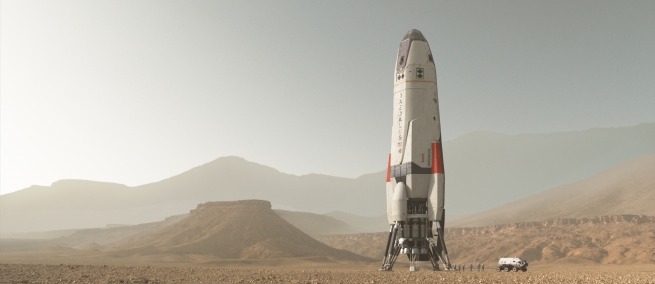
MARS is the new National Geographic series from APOLLO 13 directors Brian Grazer and Ron Howard. The story is not just about visiting, but about staying on the Red Planet. Were we to colonize Mars, the human species would be sure to survive the eventuality that Earth is destroyed.
Premiering on National Geographic on November 14, MARS features those instrumental in planning for a Mars landing such as Elon Musk. Musk is building advanced spacecrafts at his facility, SpaceX, in Hawthorne, California. So far, he is collaborating with NASA on missions to send supplies to the International Space Station. His ultimate goal is to colonize Mars and he says that the biggest engineering challenge is to create rockets that can make it to Mars and back, to be used again.
The series MARS is adapted from How We’ll Live on Mars, by Stephen L. Petranek, published by TEDBooks. MARS moves between 2016 and 2033. The gripping 2033 drama is about the first crew to land on Mars. MARS tells the legend of this crew in reverse and explores the current engineering and political challenges which get the astronauts to the Red Planet.
RadicalMedia partnered with Grazer and Howard to produce the first six episodes of MARS. Science & Film spoke with Justin Wilkes, RadicalMedia’s President of Media & Entertainment and Executive Producer of MARS, at the world premiere.
Science & Film: Why are you interested in space?
Justin Wilkes: As a kid I wanted to be an astronaut, and like any human on the planet you do look up at the night sky and wonder what’s there and what the potential is. When I figured out early in life that I couldn’t be an astronaut–it is a long road to go down–being a filmmaker seemed as interesting; you can find yourself in so many worlds or leave this world.
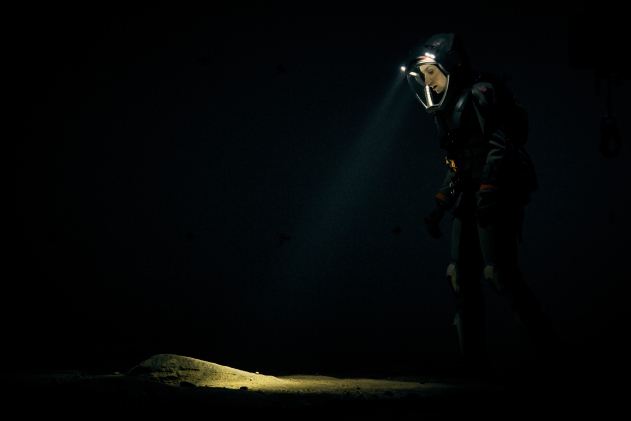
S&F: How did this project begin?
JW: The project began with a conversation with Elon [Musk], which is one of the most fascinating conversations I have ever had with anybody. In the course of about 45 minutes, it went from a very technical, engineering conversation about what they were attempting to do, and then it turned into a much larger conversation about whether we should be doing this in the first place. This was the week before one of SpaceX’s launches where they were trying to re-land a rocket. I had never even thought of anything like reusability before and when Elon started comparing it to a 747, light bulbs started going off.
Essentially, I felt like there was a big story to tell. Then, it was a question of how best to tell that story. The series began as a documentary. SpaceX is a factory just south of LAX where they are building rockets. There are more people who are young than who are old, there are people of every nationality and every ethnicity, people with Mohawks, and people with plaid shirts. There is this Willy Wonka component where you’re like, oh my god, this is insane. So, you want to bring cameras into that environment because it is cool and you want to show that off. But at the same time, you have to take audiences to a dramatic place where they can see and understand what this mission might be like. That is where this format started to come into place.
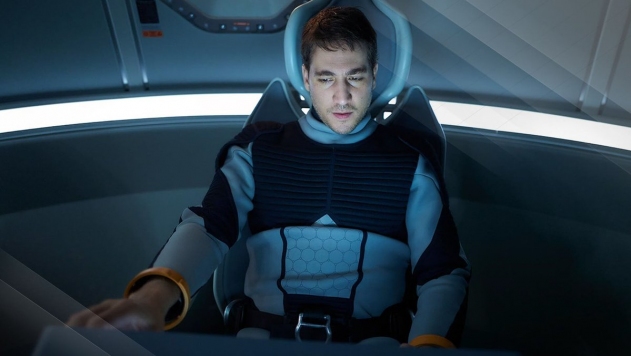
S&F: Why do you think National Geographic is a good partner?
JW: As a kid, my window to the world was that [National Geographic] yellow box. You get the magazine and that is how you see everything. Think back to the legacy of filmmaking they did in the 1960s. We have to live up to that.
MARS really coincided with the National Geographic Channel’s desire to return to their roots of that original kind of storytelling. So then we started to think, we are going to tell this story with this partner, what can we do? MARS is going to be on the cover of the magazine. To me, that is coming full circle.
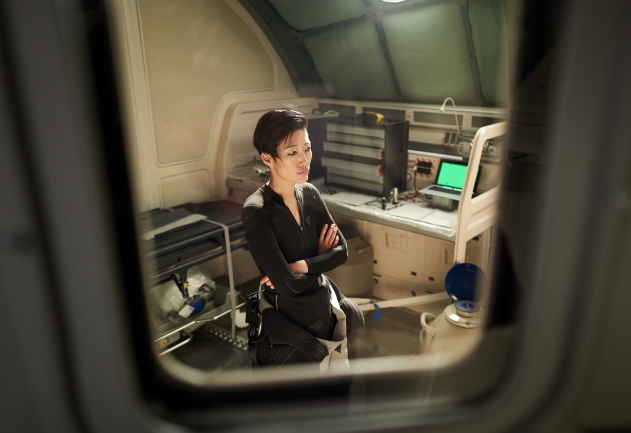
S&F: What makes MARS an important series?
JW: The biggest hope is that it finds an audience. But I think more than any pure entertainment vehicle or film that I have been a part of, is the idea that you can really inspire that super critical demographic. My daughter is five, so she is just on the earlier side of it though she is coming to the premiere. But, 8, 9, 10 year-olds–I can actually bring my daughter to this because it is friendly and inspiring. If you can inspire that generation now, so that in 20 years they are going to be dreaming about Mars the way that I grew up with the legacy of Apollo, that is incredibly exciting.
S&E: The space industry has changed since Apollo. You’re featuring Elon Musk in MARS who owns a corporation working to get to space. What do you think about the privatization of the industry?
JW: I think it has to be a public-private partnership. Private enterprise actually has the engineering and financial resources to suddenly start competing with what only nations could do, so that becomes exciting, because now you’re not relying on a government or a congress or a president to make an edict. Now, it will be someone like Elon Musk, or Jeff Bezos, or countless other titans of industry saying we are going to do this, and the government is going to come along with us. I believe, after spending some time at SpaceX, that the first mission to Mars will look a lot like what the International Space Station is where it ends up being a consortium of nations and private industry. While Elon may very well get a probe on Mars before anybody, the goal is to actually mount this mission and keep it sustainable, so you are not just going to plant a flag and then leave again, you are actually going to stay. Robert Zubrin says in the show, it’s like Christopher Columbus showing up to the New World, and then leaving again. We cannot let that happen.
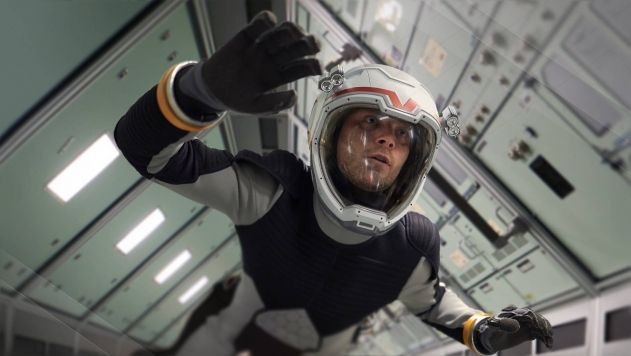
S&E: What about the economic gains from going to Mars–what about mining? Did you think about addressing that in the show?
JW: What I will say, without giving anything away, is as the season rolls on it is certainly where we end up. You start to get into the geo-political conversation. Who owns Mars? Who controls Mars? If someone is born on Mars, are they a Martian? What law do we follow there? Accessing mineral resources that may or may not be on the Martian surface–accessing the asteroid belt which is easier to get to from Mars than it is from Earth. It’s kind of a no-man’s land at this point.
This country wasn’t founded because of altruistic desires. It involved persecution, it was motivated by monetary gains, it was about harnessing natural resources, it was financed by private organizations like the Dutch East India Trading Company. Obviously, there is a good and a bad side to that and all of those issues are going to come back around when you are talking now about another planet. On the science side, we are not just bringing ourselves as humans, we are bringing every organism that comes along with us. Are we suddenly poisoning what is a pristine environment? And if there is life on Mars, are we going to somehow screw it up just by being there in the first place?
S&E: Heisenberg’s uncertainty principle.
JW: It gets really interesting. We started to tap into all of that in MARS. From a drama standpoint that is fascinating stuff.
Justin Wilkes is a film and television producer whose background is primarily in documentary. He produced the Peabody-winning film WHAT HAPPENED, MISS SIMONE? Wilkes is the president of entertainment at RadicalMedia.
Episode 1 of MARS, Novo Mundo, premieres on November 14 at 9pm EST on the National Geographic channel. The next episodes will air on November 21, 28, December 5, 12, and 19. The series features an international cast which includes Alberto Ammann (Narcos), JiHAE, Sammi Rotii (Django Unchained), and Anamaria Marinca (Hinterland). It is directed by Everardo Gout (Days of Grace). For more behind-the-scenes, read our exclusive interview with Dr. Mae Jemison.